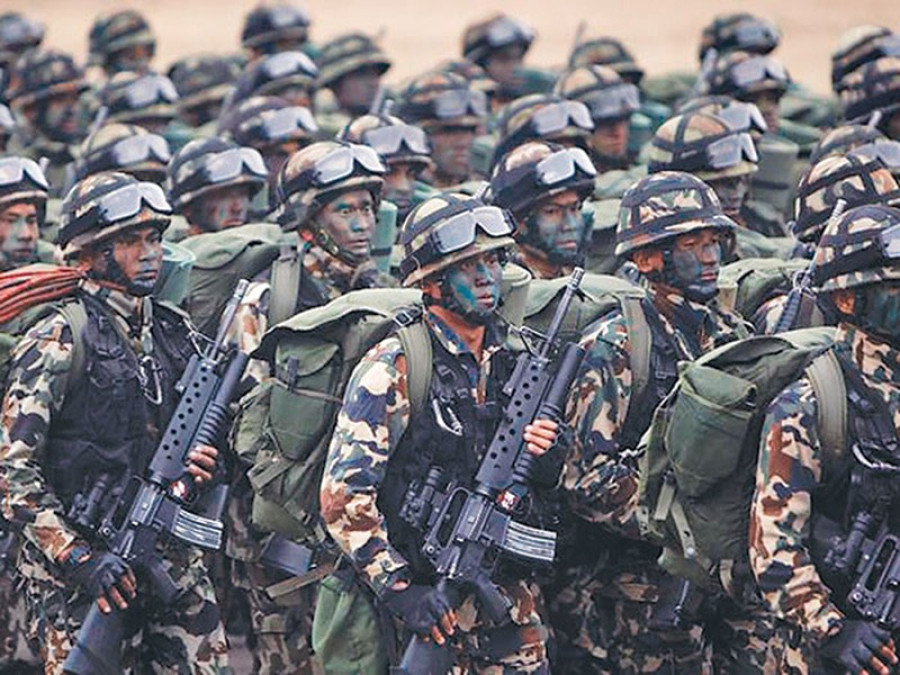Valley
Nepal withdraws from BIMSTEC military drill
Nepal Army has withdrawn from the controversial Bay of Bengal Initiative for Multi-Sectoral Technical and Economic Cooperation (BIMSTEC) level military exercise following the prime minister’s direction on Friday.
Binod Ghimire
Nepal Army has withdrawn from the controversial Bay of Bengal Initiative for Multi-Sectoral Technical and Economic Cooperation (BIMSTEC) level military exercise following the prime minister’s direction on Friday.
Prime Minister K P Sharma Oli asked the national defence force not to participate in the drill, compelling the NA’s leadership to rollback its earlier decision to take part in the first ever military exercise at the regional grouping level initiated by India. The decision was taken just a day before the Army squad was set to travel to Pune, where the drill will commence on Monday.
The government’s decision came on the heels of strong criticism from different quarters, including influential leaders from ruling Nepal Communist Party.
The armies from all seven members states had agreed to send a 30-member squad for the six-day long exercise. The event was dragged into controversy as no diplomatic or political level agreement was made before deciding to take part in the exercise.
Even the senior ministers had to come forward to announce that there was no such agreement at the BIMSTEC level. This means the decision to participate in the event was a part of military dealings among the armies with no formal agreement at the diplomatic or political level.
“The government directed the NA not to participate in the drill,” Kundan Aryal press advisor to PM Oli told the Post. A senior Army official said even though they hadn’t received a formal directive, the 30-member squad had been stopped from departing. Three Army officials who had already traveled to Pune to help plan the conference will also be returning soon, the Army officer said.
Cross-party leaders had raised their concerns against the exercise after Indian Prime Minister Narendra Modi, during his address at fourth BIMSTEC summit last week, welcomed Nepal’s presence in the drill. Though the controversy started only after Modi’s remarks, the initial planning conference of the exercise was held during the third week of June, with the participation of the army officials from seven member states, including Nepal.
Acting chief of the Nepal Army Purna Chandra Thapa, who is taking the charge of national defence force on Sunday, too, was expected to attend a meeting of the army chiefs after the conclusion of the military drill and had sought the approval from the government for the participation.
“There is no point in our Army Chief participating in the exercise which our government hasn’t approved,” Minister for Law and Justice Bhanu Bhakta Dahal told the Post.
Political and security analysts say the entire episode reveals a strategic failure on Nepal’s side. “This is a clear example of lack of strategic leadership and coordination,” Binoj Basnyat, former major general who writes on security issues, told the Post. Basnyat said the controversy would have been averted had the Cabinet approved the proposal and the president had endorsed it. He added that if there is a need for any security collaboration, there should be BIMSTEC-level security co-operation that includes participation from the Army, Civil Police, Armed Police, and Intelligence agencies.




 8.67°C Kathmandu
8.67°C Kathmandu















